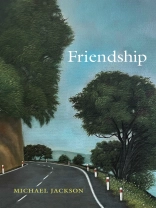In this book, renowned anthropologist Michael Jackson draws on philosophy, biography, ethnography, and literature to explore the meanings and affordances of friendship—a relationship just as significant as, yet somehow different from, kinship and love. Beginning with Aristotle’s accounts of friendship as a political virtue and Montaigne’s famous essay on friendship as a form of love, Jackson examines the tension between the political and personal resonances of friendship in the philosophy of Hannah Arendt, the biography of the Indian historian Brijen Gupta, and the oral narratives of a Kuranko storyteller, Keti Ferenke Koroma. He offers reflections on childhood friends, imaginary friends, lifelong friendships, and friendships with animals. He ruminates particularly on the complications of friendship in the context of anthropological fieldwork, exploring the contradiction between the egalitarian spirit of friendship on the one hand and, on the other, the power imbalance between ethnographers and their interlocutors.
Through these stories, Jackson explores the unpredictable interplay of mutability and mutuality in intimate human relationships, and the critical importance of choice in forming friendship—what it means to be loyal to friends through good times and bad, and even in the face of danger. Through a blend of memoir, theory, ethnography, and fiction, Jackson shows us how the elective affinities of friendship transcend culture, gender, and age, and offer us perennial means of taking stock of our lives and getting a measure of our own self-worth.
A propos de l’auteur
Michael Jackson is Senior Research Fellow in World Religions at Harvard Divinity School.












